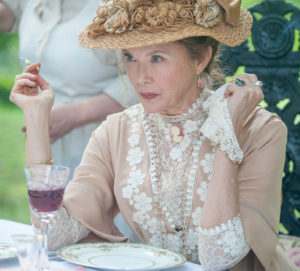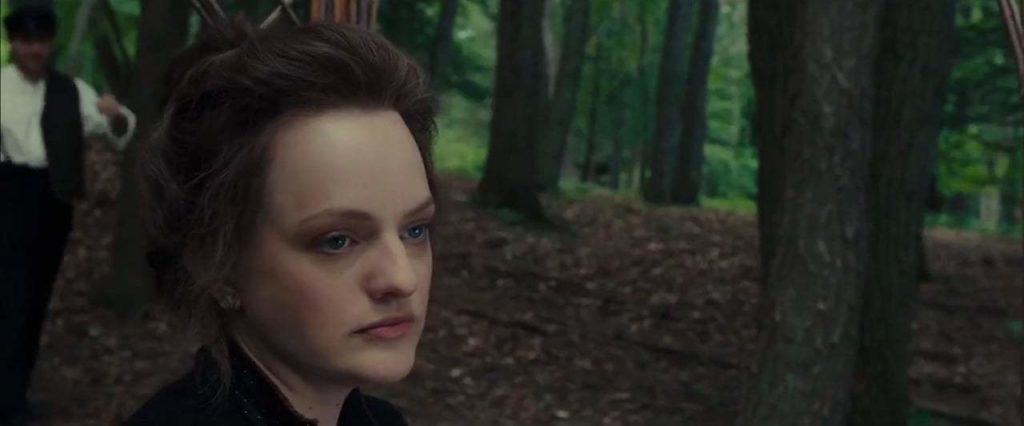
Anton Chekhov is one of literature’s all-time great talents. So, it is only fitting that Michael Mayer’s retelling of Chekhov’s classic tale, The Seagull, receives a world-class cast. Headlined by Saoirse Ronan, Elisabeth Moss, Annette Bening, and Corey Stoll, The Seagull tells a timeless tale about family drama, chasing fame, and unrequited love.
Irina (Annette Bening) is a successful actress who leaves Moscow to stay at her summer home with her ailing brother Sorin (Brian Dennehy). She’s accompanied by her younger lover Boris (Corey Stoll), who is a famous author and her pompous son Konstantin (Billy Howle). Konstantin dreams of being a writer but creates strange plays that people don’t understand. Konstantin is madly in love with Nina (Saoirse Ronan), an aspiring actress who lives on the neighbouring estate. Tensions start running high after Konstantin’s latest play isn’t well-received and Nina becomes smitten with Boris.
Too many films mismanage their large cast. Characters often pop in and out of the story only to move the plot along. They’re usually one dimensional, devoid of personality, and come off as wastes of screen time. But The Seagull, with its huge cast, doesn’t have this problem. Along with the actors listed above, The Seagull stars Mare Winningham, Glenn Fleshler, and Michael Zegen. That’s a lot of characters to service but Mayer pulls it off.
When Moss or Zegen show up they feel like real, fully formed people despite their limited screen time. It’s as if they existed in their own movies before hopping over into The Seagull. Part of that comes with directing gifted actors. But also, Chekhov was a master of the form, and he crafted beautiful, messy, and compelling characters actors could easily slip into.
The Seagull hooked me right off the bat with its impressive score. Nico Muhly and Anton Sanko do a wonderful job matching the film’s tone, especially early on. As the opening title cards appear on screen the music is whimsical and inviting; I found it as gentle and soothing as a warm spring breeze. As the film’s cast descend into the darker regions of the human soul, the score is appropriately sombre. Usually, you don’t want a film’s score to take you out of the movie, but The Seagull had me making a mental note: Run out after the movie and track down the soundtrack.
People throw the term cinematic around to describe TV that has an “epic movie” type of feel. The Seagull feels theatrical; it’s a movie-theatre hybrid. The performances are pitched up from most films, but they don’t reach full-on theatre mode like 2005’s The Producers. But the dialogue does feel plucked from the stage. The characters banter and their cadences are out of step with what you find in most films. That’s in no way a knock because it’s exactly what Mayer is striving for. If you don’t like theatre you may find this style off-putting. If theatre is your thing, you’ll feel right at home. I give the film bonus points for letting the actors play Russian characters with their own American accents. I prefer that to hackneyed Russian accents or the typical go to: British.
We all want to feel valued, loved, and respected so we spend our lives chasing those things. In The Seagull, the assumed route towards feeling loved, respected, and valued is through fame. And if fame exists on a spectrum, Chekhov positions his characters at various points across it. Irina, a fleeting beauty, desperately clutches at any wisp of attention. She makes compromises to extend her time in the spotlight and The Grim Reaper will have to rip fame from her cold dead hands. Boris sits at the height of fame but remains unsatisfied. Boris feels like he’s on a hamster wheel, maintaining his success but bringing him no closer to happiness. Nina and Konstantin share a romantic notion of fame and view it as a path to credibility. The exceptional script sets up all these pieces and then lets them ping-pong off each other to dramatic effect.
The Seagull is an engrossing adaptation of Chekhov’s classic play. That Chekhov’s turn of the century tale still resonates today is a testament to his mastery of the form. Mayer steps in and makes great use of his accomplished cast who turn in top-notch performances across-the-board. Mayer strikes a playful mix between the stage and the screen to produce a film that feels both theatrical and cinematic.
- Release Date: 5/11/2018


